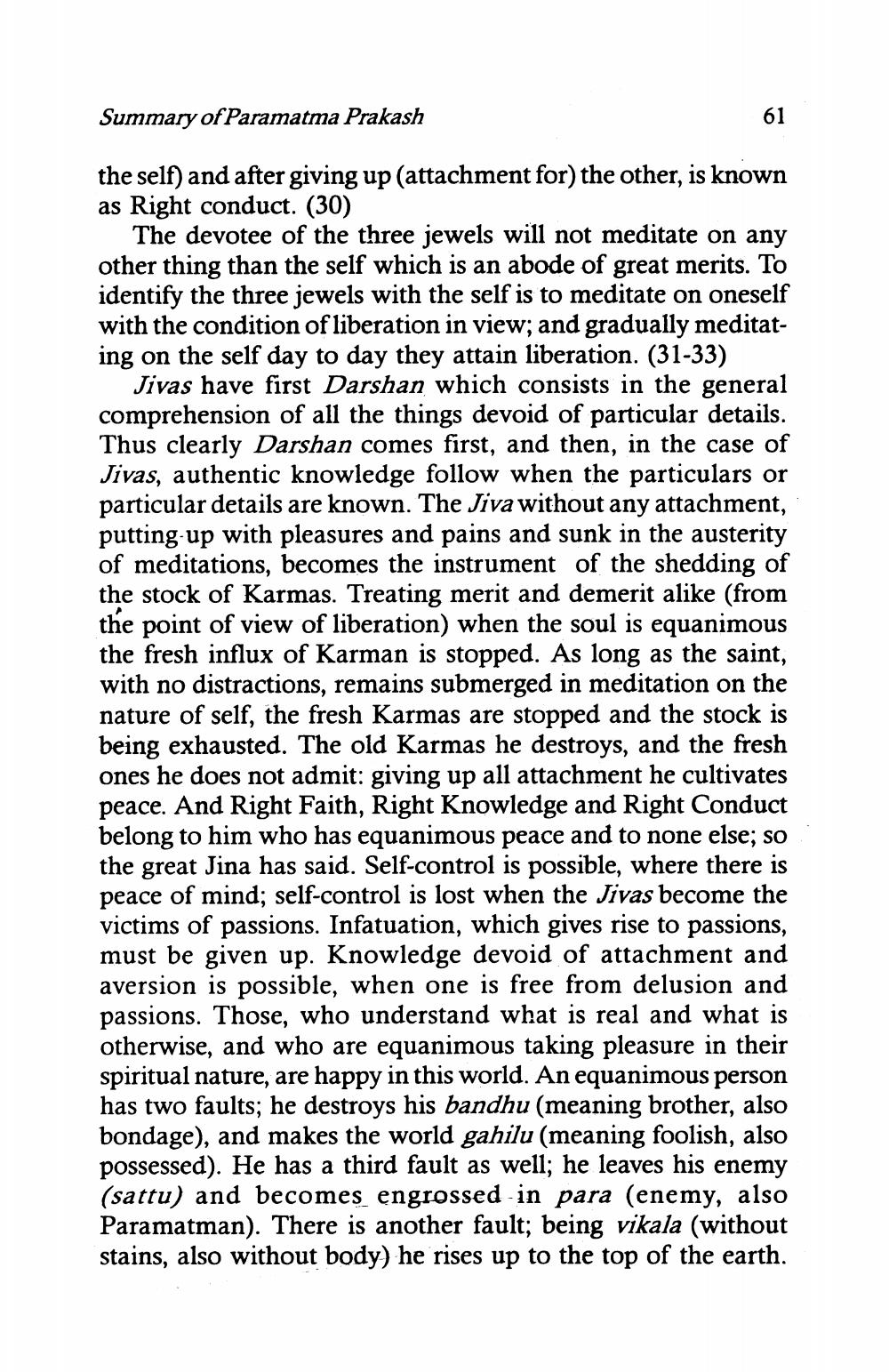________________
Summary of Paramatma Prakash
61
the self) and after giving up (attachment for) the other, is known as Right conduct. (30)
The devotee of the three jewels will not meditate on any other thing than the self which is an abode of great merits. To identify the three jewels with the self is to meditate on oneself with the condition of liberation in view; and gradually meditating on the self day to day they attain liberation. (31-33)
Jivas have first Darshan which consists in the general comprehension of all the things devoid of particular details. Thus clearly Darshan comes first, and then, in the case of Jivas, authentic knowledge follow when the particulars or particular details are known. The Jiva without any attachment. putting up with pleasures and pains and sunk in the austerity of meditations, becomes the instrument of the shedding of the stock of Karmas. Treating merit and demerit alike (from the point of view of liberation) when the soul is equanimous the fresh influx of Karman is stopped. As long as the saint, with no distractions, remains submerged in meditation on the nature of self, the fresh Karmas are stopped and the stock is being exhausted. The old Karmas he destroys, and the fresh ones he does not admit: giving up all attachment he cultivates peace. And Right Faith, Right Knowledge and Right Conduct belong to him who has equanimous peace and to none else; so the great Jina has said. Self-control is possible, where there is peace of mind; self-control is lost when the Jivas become the victims of passions. Infatuation, which gives rise to passions, must be given up. Knowledge devoid of attachment and aversion is possible, when one is free from delusion and passions. Those, who understand what is real and what is otherwise, and who are equanimous taking pleasure in their spiritual nature, are happy in this world. An equanimous person has two faults; he destroys his bandhu (meaning brother, also bondage), and makes the world gahilu (meaning foolish, also possessed). He has a third fault as well; he leaves his enemy (sattu) and becomes engrossed in para (enemy, also Paramatman). There is another fault; being vikala (without stains, also without body) he rises up to the top of the earth.




